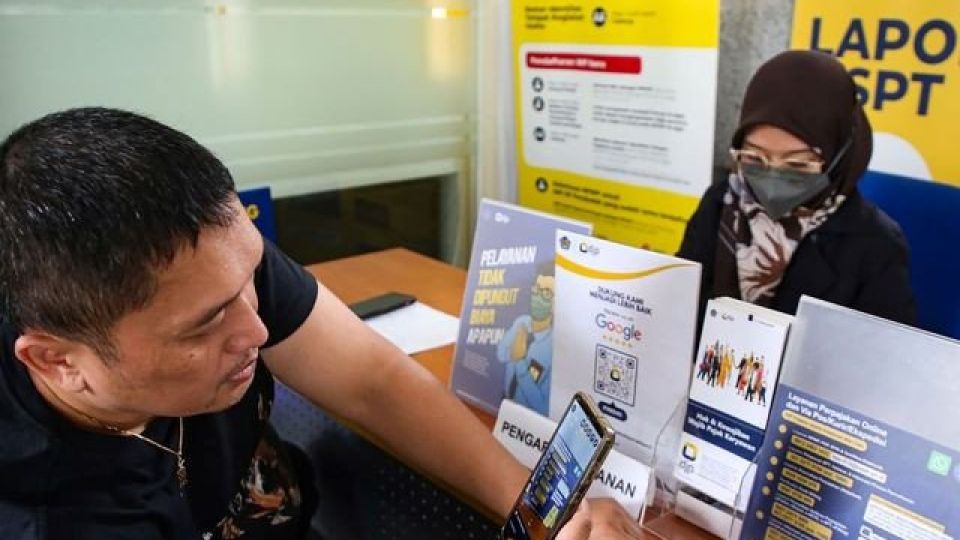January 18, 2024
JAKARTA – In the run-up to the presidential election on Feb.14, challenges in the taxation sector have been some of the most widely discussed topics in the ongoing political campaigns.
Drawing parallels with the 2016 United States presidential election, where Hillary Clinton’s proposed tax increases on the wealthy played a role in her defeat to Donald Trump, it is evident that tax policies can sway political outcomes. Trump, advocating for tax reductions, secured substantial support that catapulted him into the White House.
With almost 80 percent of Indonesia’s state revenue for economic development stemming from taxes, discussions about promising economic growth and broadening the tax base can be pivotal.
Taxes, serving as the primary instrument for implementing macroeconomic policies, mobilizing state revenue and fostering economic growth and poverty reduction underscore the need for sustainable tax reforms. The World Bank in 2021 highlighted how numerous countries needed to embark on comprehensive tax reforms to spur their economic growth.
Despite a shared focus on tax reform, the three presidential candidates offer distinct approaches. The candidate pair of Anies Baswedan and Muhaimin Iskandar emphasizes fair tax regulations that do not burden the public, aligning with the principle of equity in Indonesian taxation. They pledge to control tax incentives, broaden the tax base and increase the tax ratio to 13-16 percent of gross domestic product (GDP) during their five-year leadership if elected.
In contrast, the candidate pair of Prabowo Subianto and Gibran Rakabuming Raka vows to establish a National Revenue Agency, transforming the Taxation Directorate General, which is currently under the Finance Ministry, into an independent institution. This commitment, integral to their political campaign and part of their first 100-day program if elected, includes an ambitious target of raising the tax ratio to 23 percent of GDP, presenting a promising vision for Indonesia’s future economic and tax landscape.
However, these promises are quite ambitious and there are challenges to their realization. Even during President Joko “Jokowi” Widodo’s decade-long term, a campaign pledge to establish the National Revenue Agency in the 2014 presidential campaign remains unfulfilled. Based on data from the Finance Ministry, the tax ratio in 2023 stood at 10.2 percent, down from 10.85 percent in 2014 when Jokowi came to power.
The promise of a 23 percent tax ratio is ambitious and likely challenging in the short term. Meanwhile, the Anies-Muhaimin pair, vowing to increase the tax ratio to 16 percent, faces a similarly arduous task but one that appears more feasible. If either the Anies-Muhaimin or Prabowo-Gibran ticket succeeds in fulfilling its promise, Indonesia, currently categorized as a middle-income country, may ascend to the ranks of advanced nations as a high-income country – a vision worthy of appreciation and support.
The third candidate pair of Ganjar Pranowo and Mahfud MD brings specific tax policy promises, including providing tax incentives for digital start-ups and special tax benefits for the Papua region. The tax incentive for start-ups, outlined in Government Regulation No. 23/2018, aims to stimulate digital start-up growth and could positively impact the nation’s economy.
There are three prerequisites that I believe should be met and implemented by the elected president for the improvement of Indonesian taxation.
First, data integration is crucial. Effective data integration, going beyond the current exchange approval status, which is currently not optimally executed, is needed. The Satu Data Indonesia (One Data Indonesia) policy initiated by President Jokowi is an excellent foundation to support the optimization of tax duties, allowing for the maximum collection of state revenue. The 2012 Tax Regulation also mandates that all levels of government provide tax-related data to the Taxation Directorate General, but this policy has yet to be optimally implemented.
The second prerequisite is the absolute necessity for coordination and cooperation among all government elements. The elected president should provide clear instructions that all government agencies support the Taxation Directorate General in its duties. With 80 percent of the state’s income coming from taxes, it is reasonable for all government agencies to support tax authorities in collecting state taxes to contribute to the state budget.
The third is a comprehensive reform of the tax authority, particularly the establishment of a separate revenue agency to enhance the effectiveness and efficiency of tax obligations. The elected president, with the support of the government, should carefully and precisely plan this tax reform program. The newly formed tax revenue agency should not only be a change in appearance but should be tasked with achieving clearly defined targets, including the amount of tax revenue increase and the targeted tax ratio.
In conclusion, the elected president must execute strategies and policies that will create a better future for Indonesia’s taxation and economy. The selected cabinet members must wholeheartedly support all policies and programs that enhance the effectiveness of tax obligations, ensuring the successful collection of taxes in the future.
This is crucial for achieving development equality and prosperity for the entire Indonesian population.
***
The writer is a PhD student in Economics and Commerce at the University of Western Australia and a Board Committee member of Indonesian Fiscal and Tax Administration Association (IFTAA). The views expressed are his own.


